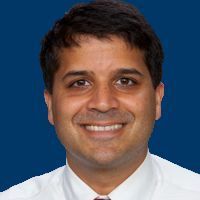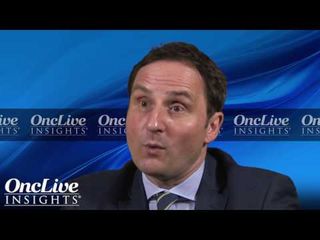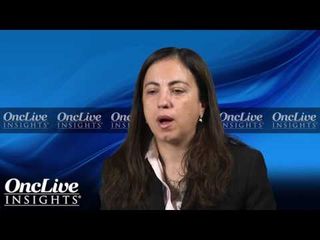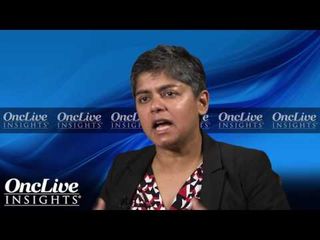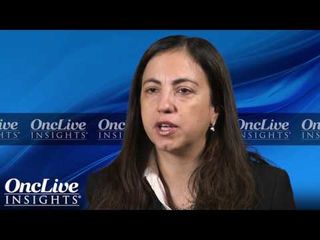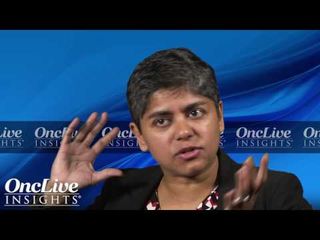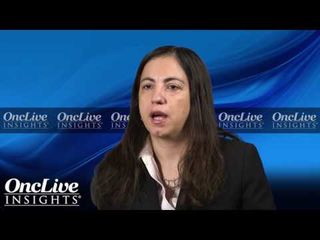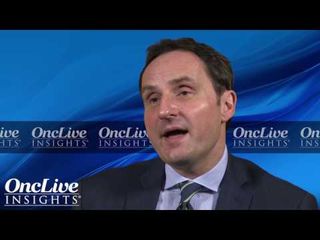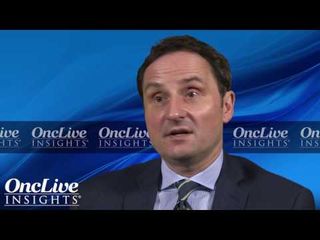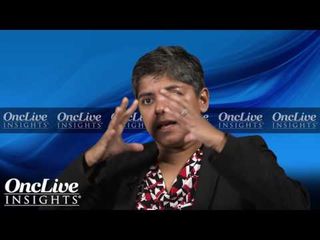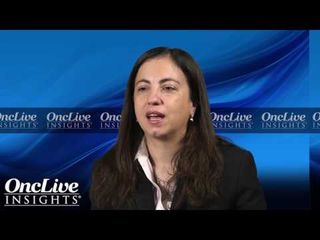
Brain Cancer
Latest News

Adjuvant Neratinib Misses Primary End Point of OS in Glioblastoma, But Significantly Prolongs PFS in EGFR+ Subset

GLORIA Trial Examining NOX-A12 Plus Radiotherapy/Bevacizumab in Glioblastoma Safe to Continue Recruitment
Latest Videos

CME Content
More News
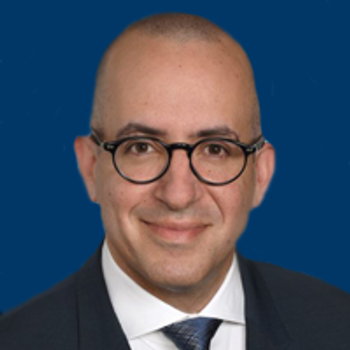
A phase 0 trial that will evaluate niraparib in patients with newly diagnosed glioblastoma and recurrent glioma has just opened.

Concurrent use of tumor-treating fields, radiation therapy, and temozolomide is under study as a potential treatment for patients with newly diagnosed, stage IV glioblastoma.

Wenyin Shi, MD, PhD, discusses the rationale to evaluate a tumor-treating fields therapy in combination with temozolomide and radiation therapy in glioblastoma.

The FDA has granted a rare pediatric disease designation to lutetium-177-omburtamab-DTPA for use as a potential therapeutic option in pediatric patients with medulloblastoma, according to an announcement from Y-mAbs Therapeutics, Inc., the developer of the product.

The FDA has granted an orphan drug designation to LP-184 as a potential therapeutic option for patients with glioblastoma multiforme and other malignant gliomas.

The FDA has granted a fast track designation to the highly selective CK2 inhibitor silmitasertib as a potential therapeutic option for patients with recurrent sonic hedgehog–driven medulloblastoma
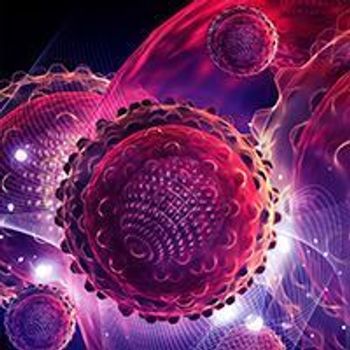
Cellular medicine could represent the next frontier in the treatment of patients with cancer and many other diseases with a high unmet need.

The FDA has granted a fast track designation to berubicin as a potential therapeutic option for patients with recurrent glioblastoma multiforme.

Amy B. Heimberger, MD, discusses the variability of responses in glioblastoma.
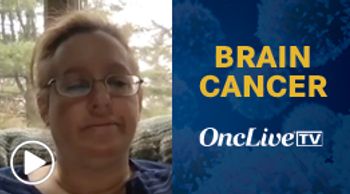
Stephanie E. Weiss, MD, FASTRO, discusses selecting optimal radiation therapy for patients with brain metastases.

The University of Texas MD Anderson Cancer Center is pursuing several novel approaches, including viro-immunotherapy and genetically engineered natural killer cells to treat patients with glioblastoma, while also conducting tumor analysis to better comprehend the disease.

The Japan Ministry of Health, Labour, and Welfare has granted conditional and time-limited approval to teserpaturev for the treatment of patients with malignant glioma; this is the first oncolytic virus to receive approval for use in this indication or any primary brain cancer.

The personalized cancer vaccine AV-GBM-1, developed by AIVITA Biomedical Inc., significantly improved progression-free survival over standard of care in patients with newly diagnosed glioblastoma.

Innovative strategies are vital for patients diagnosed with rare cancers, who are frequently at a disadvantage compared with those who have more common malignancies, experts say.

Sara M. Federico, MD, discusses risk categorization in neuroblastoma.
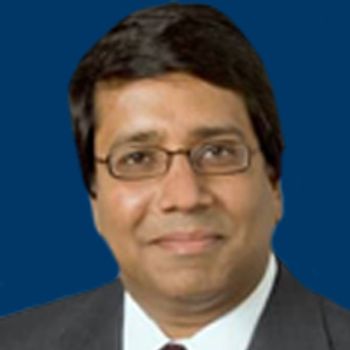
Standard response assessment in neuro-oncology- and immunotherapy RANO-defined progression-free did not correlate with overall survival vs modified RANO-defined PFS, which strongly correlated with OS in patients with recurrent glioblastoma treated with MDNA55 in a phase 2 trial, suggesting that mRANO may be the optimal means of therapeutic response assessment in recurrent glioblastoma.

Stephanie E. Weiss, MD, FASTRO and Eric M. Horwitz, MD, FABS, FASTRO, discuss ways to leverage radiation in the treatment of central nervous system metastases, areas of active investigation, and different available strategies that are improving outcomes for patients with cancer.
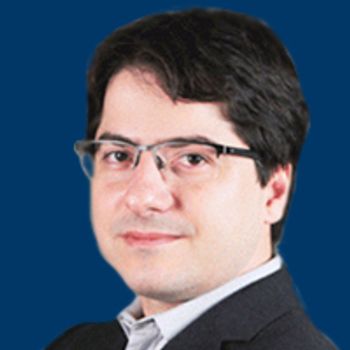
Cell-free methylated DNA immunoprecipitation-sequencing uses plasma cell-free methylomes to detect and classify several types of cancer early on, and provides the opportunity to monitor tumors for response to treatment in noninvasive way.

Natural killer T cells that co-express GD2-CAR and interleukin-15 were found to be safe and to demonstrate evidence of in vivo expansion and localization to metastatic sites in patients with stage IV relapsed/refractory neuroblastoma.
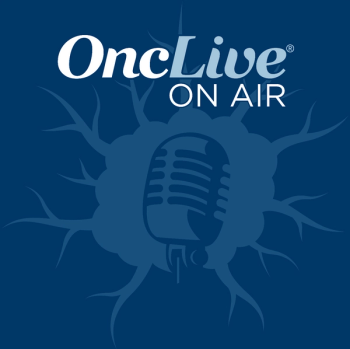
Sara M. Federico, MD, discusses the diagnosis and presentation of neuroblastoma, the role of multidisciplinary care, and novel therapies that could significantly affect the treatment paradigm for this malignancy.

Thomas Bachelot, MD, discussed how to approach treatment of patients with HER2-positive breast cancer and CNS metastases and the impact of tucatinib in this population.

The FDA has granted a rare pediatric disease designation to the p-STAT3 inhibitor WP1066 for the treatment of patients with ependymoma, a rare type of tumor that can develop in the brain or the spinal cord.
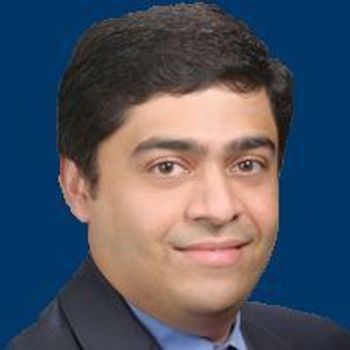
Dual inhibition of the MAPK pathway using the BRAF and MEK inhibitors dabrafenib and trametinib, respectively, resulted in durable clinical benefit for patients with BRAF V600E mutant low- and high-grade glioma.

The FDA has recommended the early termination of a phase 2 trial examining the cell-based immunotherapy ERC1671 in combination with granulocyte-macrophage colony-stimulating factor, cyclophosphamide, and bevacizumab in patients with glioblastoma.

Because the current standard-of-care modalities have significant limitations, there has been a great interest in pursuing immunotherapeutic strategies for glioblastoma.


